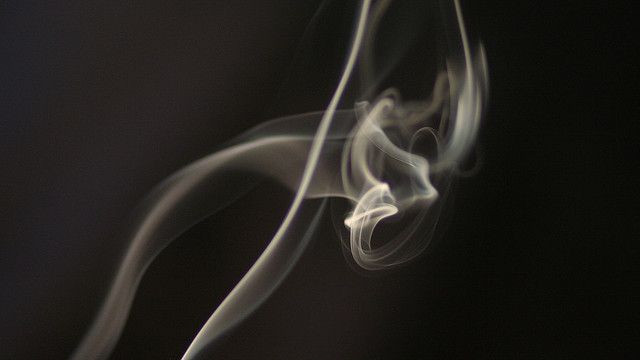How Stress Makes The World Stink: Anxiety, Stress Stimuli 'Rewire' Sense Of Smell To Perceive Neutral Smells As Malodorous, Study Finds

High levels of stress makes can make the world stink – literally. In an effort to map the human sense of smell, researchers at the University of Wisconsin-Madison have discovered that anxiety and stress may temporarily rewire the brain by linking olfaction to emotion. As a result, neutral scents begin to take on malodorous characteristics.
Published in the Journal of Neuroscience, the study used functional magnetic resonance imaging (fMRI) technology to examine how anxiety- and stress-inducing stimuli affect the brain.
"After anxiety induction, neutral smells become clearly negative," lead researcher Wen Li told reporters. "People experiencing an increase in anxiety show a decrease in the perceived pleasantness of odors. It becomes more negative as anxiety increases."
In an experiment, volunteers were first asked to assess a series of benign smells. After that, the subjects were fitted with the fMRI equipment and exposed to a series of disturbing texts and images. Finally, the researchers returned the subjects to the scent panel and asked them to evaluate each of them one more time.
According to the researchers, most subjects appeared to assign negative responses to the scents they had previously considered neutral and subdued. More importantly, the fMRI scans later revealed that the subjects’ olfaction and emotion became intertwined during their exposure to the stress stimuli. Though typically independent, the two brain circuits suddenly seemed yoked together.
"In typical odor processing, it is usually just the olfactory system that gets activated," Li explained. "But when a person becomes anxious, the emotional system becomes part of the olfactory processing stream.”
Besides explaining why stress makes everything seem terrible, the findings may also help scientists achieve a better understanding of chronic depression and anxiety. The temporary link between olfaction and emotion generates a “feedback loop,” in which the initial stress stimulus is continuously projected onto the perceived world. As a result, these negative feelings can escalate rapidly without significant adjustment to the original stressor.
"We encounter anxiety and as a result we experience the world more negatively. The environment smells bad in the context of anxiety,” Li said. “It can become a vicious cycle, making one more susceptible to a clinical state of anxiety as the effects accumulate. It can potentially lead to a higher level of emotional disturbances with rising ambient sensory stress."
Source: E. A. Krusemark, W. Li. From Early Sensory Specialization to Later Perceptual Generalization: Dynamic Temporal Progression in Perceiving Individual Threats. Journal of Neuroscience, 2013; 33 (2).



























